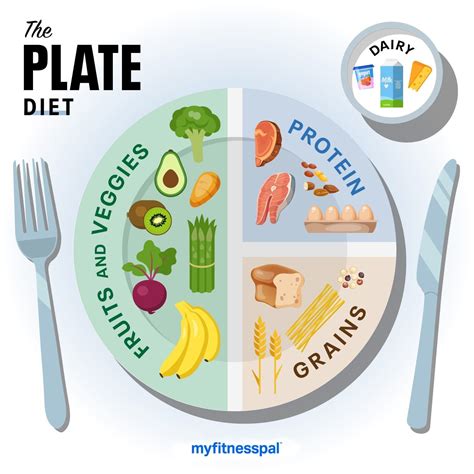Best diet changes to combat afternoon energy crashes & optimize focus?

Understanding the Afternoon Slump: Why It Happens
The dreaded afternoon energy crash is a familiar enemy for many. That feeling of brain fog, sluggishness, and an overwhelming desire for a nap (or another coffee) can derail productivity and make the latter half of your workday feel like an uphill battle. Often, these dips in energy and focus are not just about sleep deprivation; they are intimately tied to what, when, and how you eat. Fluctuations in blood sugar, inadequate nutrient intake, and even dehydration play significant roles in how your body and brain function post-lunch.
Your body’s primary energy source comes from glucose, which is derived from carbohydrates in your diet. When you consume highly processed or sugary foods, your blood sugar can spike rapidly and then crash, leading to that characteristic energy slump. Conversely, a lack of sustained energy can result from meals that don’t provide the necessary balance of macronutrients to fuel your body steadily.

Foundation First: Balanced Meals Are Key
The cornerstone of combating afternoon energy crashes is to build your meals around balance. This means incorporating a good mix of complex carbohydrates, lean proteins, and healthy fats at every sitting, especially at breakfast and lunch.
- Prioritize Protein: Protein helps slow down glucose absorption, preventing sharp blood sugar spikes and providing a sustained release of energy. Include sources like lean meats, fish, eggs, legumes, tofu, or Greek yogurt.
- Choose Complex Carbohydrates: Unlike simple sugars, complex carbs (found in whole grains, fruits, and vegetables) release glucose slowly into your bloodstream, offering a steady energy supply. Opt for brown rice, quinoa, whole-wheat bread, oats, and a variety of colorful vegetables.
- Embrace Healthy Fats: Healthy fats (from avocados, nuts, seeds, and olive oil) contribute to satiety and play a crucial role in brain function. They also help to further stabilize blood sugar.
A breakfast featuring oatmeal with berries and nuts, or eggs with whole-wheat toast and avocado, sets a strong foundation. For lunch, a salad with grilled chicken, quinoa, and olive oil dressing, or a lentil soup with whole-grain bread, can keep you fueled without feeling heavy.

Smart Snacking and Strategic Fueling
Allowing yourself to become overly hungry between meals can lead to overeating and poor food choices. Strategic snacking can maintain stable blood sugar and energy levels. However, the type of snack matters immensely.
- Avoid Sugary and Refined Snacks: Candies, pastries, and white flour products offer a quick burst of energy followed by an inevitable crash. They do more harm than good for sustained focus.
- Opt for Nutrient-Dense Snacks: Choose snacks that combine protein, fiber, or healthy fats. Examples include a handful of almonds, an apple with peanut butter, Greek yogurt, or vegetable sticks with hummus. These options provide a steady release of energy and essential nutrients that support cognitive function.

Hydration and Nutrient Powerhouses
Often overlooked, dehydration can mimic the symptoms of fatigue and brain fog. Even mild dehydration can significantly impair cognitive function and energy levels. Make sure to drink plenty of water throughout the day, aiming for at least 8 glasses, and consider herbal teas or infused water for variety.
Beyond water, certain micronutrients are vital for energy production and brain health. B vitamins, magnesium, and omega-3 fatty acids are particularly important. Incorporate foods rich in these nutrients:
- B Vitamins: Whole grains, leafy greens, eggs, and lean meats.
- Magnesium: Nuts, seeds, leafy green vegetables, and dark chocolate.
- Omega-3 Fatty Acids: Fatty fish (salmon, mackerel), flaxseeds, chia seeds, and walnuts.

The Role of Meal Timing and Mindful Eating
It’s not just what you eat, but also when and how. Regular meal timing can train your body to expect fuel, preventing drastic energy drops. Aim for meals and snacks every 3-4 hours.
Mindful eating also plays a crucial role. Eating too quickly or while distracted can lead to overeating and poor digestion, which can contribute to post-meal sluggishness. Take time to chew your food thoroughly, savor the flavors, and listen to your body’s hunger and fullness cues. This allows your digestive system to work more efficiently and helps you recognize when you’ve had enough, preventing the heavy, bloated feeling that often precedes an energy crash.

Conclusion
Combating afternoon energy crashes and optimizing focus doesn’t require drastic or unsustainable dietary overhauls. Instead, it’s about making conscious, consistent choices that support stable blood sugar, adequate hydration, and comprehensive nutrient intake. By prioritizing balanced meals, smart snacking, ample hydration, and mindful eating, you can transform your energy levels and cognitive function, ensuring you stay sharp and productive from morning until evening.









